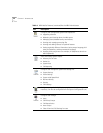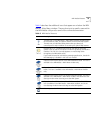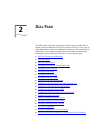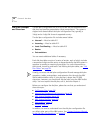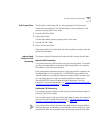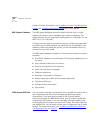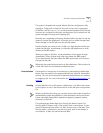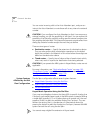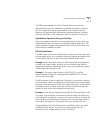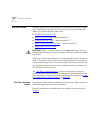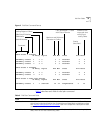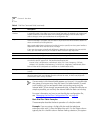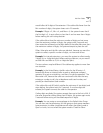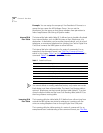
Dial Plan Concepts and Overview 31
The system is shipped with several default dial plan configuration files,
typically, a 3-digit and a 4-digit file for each country that is supported.
In addition, the file
samples.txt contains several examples that illustrate
how you can configure the dial plan configuration file to control how the
system manages incoming and outgoing calls.
Normally, you completely configure a dial plan before you start to use the
system to control the telephones. Although you can make changes later,
major changes in the dial plan can disrupt the system.
Decide whether you want to use a 3-digit or 4-digit dial plan before you
create the dial plan, autodiscover, or manually add telephones or other
devices to the NBX system.
When you import a dial plan, some parameters of the system change
immediately. Others change only when you reboot the NBX system.
3Com recommends that you reboot the NBX system each time that you
change the dial plan.
Rebooting the system disrupts service to the telephones. Plan to reboot at
a time that does not inconvenience telephone users.
Pretranslation
Pretranslation is the process of translating (or manipulating) dialed digits
before they are passed to the appropriate dial plan table for subsequent
routing. You can set the dial plan to perform pretranslation on incoming
or outgoing calls. For more information, see “
Dial Plan Pretranslators” on
page 40
.
Routing
Routing specifies how a call reaches a destination. You define the routes
for the system to use in the Routes section of the dial plan configuration
file.
When you define call routing, you can also instruct the system to perform
pretranslations (digit manipulations). Both destination routes and timed
routes have digit manipulation operations (append, prepend, replace,
stripLead, or stripTrail).
The system passes dialed digits first through the device’s Least Cost
Routing table (if there is one). If the system finds no entry there, it then
uses the Normal dial plan table. If it does find an entry in the Least Cost
Routing table, it attempts to use that entry and, even if the attempt is
unsuccessful, it does not use the Normal table.




